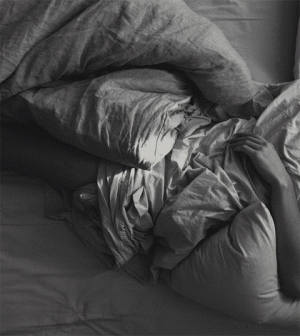- Finding Unshakable Power in a World That Wants to Pull Us ApartPosted 5 months ago
- What could a Donald Trump presidency mean for abortion rights?Posted 5 months ago
- Financial Empowerment: The Game-Changer for Women in Relationships and BeyondPosted 6 months ago
- Mental Health and Wellbeing Tips During and After PregnancyPosted 7 months ago
- Fall Renewal: Step outside your Comfort Zone & Experience Vibrant ChangePosted 7 months ago
- Women Entrepreneurs Need Support SystemsPosted 7 months ago
Night Sweats: Causes and Solutions

By Deborah Mitchell | NaturallySavvy.com
Night sweats and their daytime cousins’ hot flashes are common symptoms among women who are entering perimenopause through menopause and postmenopause. Yet these are not the only times or reasons why women experience night sweats. Once you know the reason behind this uncomfortable sleep disruptor, you can take steps to alleviate and perhaps even stop their occurrence. Are you game to uncover those reasons and some solutions as well?
Read about 7 reasons you wake up at night and how to fix them
Causes of night sweats
When a woman’s hormones begin to fluctuate around age 40, it’s a signal that perimenopause is upon her. The changes in estrogen, progesterone, and testosterone are associated with a variety of symptoms, and night sweats can one of them. However, if night sweats are happening at other times in your life, or even if you are in the menopausal zone, you and your doctor may want to explore a few other causes for your discomfort.
Use of medications: Night sweats can be a side effect of drugs used to treat diabetes (hypoglycemic medications), hormone-blocking drugs used to treat some cancers, and antidepressants.
Medical conditions. A substantial number of diseases and conditions can cause night sweats. They include anxiety disorders, autoimmune disorders, autonomic neuropathy, HIV/AIDS, endocarditis, Hodgkin’s lymphoma, hyperthyroidism, leukemia, myelofibrosis, non-Hodgkin’s lymphoma, osteomyelitis, obstructive sleep apnea, drug addiction, and drug addiction withdrawal, stroke, thyroid disease, tuberculosis, and hypoglycemia.
Lifestyle/environmental causes: Some women experience night sweats if they eat spicy foods or hot beverages before retiring, are exposed to hog weather or sleep in an over-heated room, are covered with an excessive amount of bedclothes or blankets, or exercise before going to bed.
Pregnancy: More than one-third of women reported having either night sweats or hot flashes during pregnancy. The symptom peaked at week 30. For more than one-quarter of women, the hot flashes occurred postpartum, reaching their worst at week 2 and improving thereafter. Rapid changes in hormone levels are believed to be the cause.
Read about 5 ways how essential oils can help you with night sweats
Natural solutions for night sweats
Some of the natural ways to treat night sweats are the same as those recommended for hot flashes, but others are not. Here’s a list of options. Feel free to try more than one!
Practice relaxation techniques before retiring. You want to do nonstressful activities, such as deep breathing exercises, guided visualization, meditation, tai chi, or calming yoga poses.
- Wear lightweight, loose-fitting cotton bedclothes. You may want to dress in layers so you can add and remove clothing during the night if necessary.
- Use several layers of bedding that you can easily add or remove during the night as needed
Keep a small fan next to your bed or in a nearby window. If it has a remote, you won’t even need to get out of bed - Place a cold pack under your pillow. Turn your pillow over and rest on the cool surface. You can switch during the night if you wake up.
- Keep cold water next to your bed so you sip it during the night as needed.
- Try a solution you can add to your bed to keep you cool. An example is BedJet (full disclosure-we love this product and own one ourselves), a system that combines technology that allows you to set your own individual sleep temperature, depending on your needs. It both cools and warms your sleep experience while also whisking away sweat. One study found that 85 percent of women who had night sweats got significant relief when using this system.
- Alter your habits. Some common triggers of night sweats include caffeine, spicy foods, cigarettes, and alcohol.
- Exercise every day. Even 20 minutes a day can be beneficial. Walking, dancing, tennis, spinning, yoga, and swimming are just a few suggestions.
- Try natural supplements. The ability of black cohosh, genistein (a component of soy), and vitamin E to ease night sweats is mixed. Talk to a qualified healthcare professional before using these remedies.
- Turn to alternatives. The North American Menopause Society suggests hypnosis as a treatment for hot flashes. Acupuncture also may reduce the severity or frequency of hot flashes.
Bottom line
Night sweats can be uncomfortable, annoying, and cause you to lose sleep. However, there are numerous natural ways to combat this symptom, and we hope you try one or more of them and find relief. Sweet dreams!
DISCLAIMER: This article contains affiliate links, which means that if you click on one of the product links, Naturally Savvy will receive a small commission so we can keep pumping out amazing articles like this one. Thank you so much for your support!
*Feature Slider Image by Daria Shevtsova
Sources
Mayo Clinic staff. Night sweats. Mayo Clinic.
North American Menopause Society. Bothered by hot flashes? Acupuncture may be the answer. 2014 Jul 14
Thurston RC et al. Prospective evaluation of nighttime hot flashes during pregnancy and postpartum. Fertility and Sterility 2013; 100(6):1667-72.






